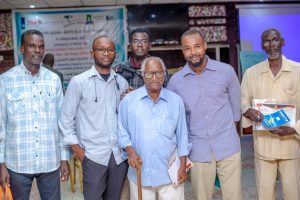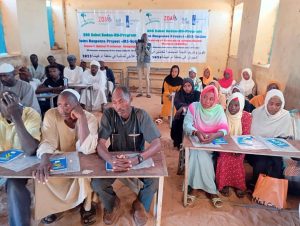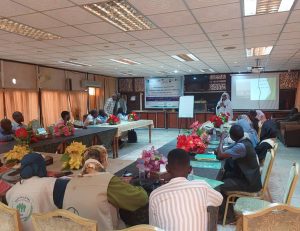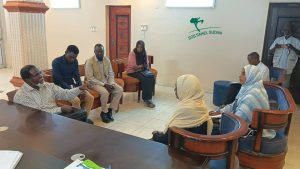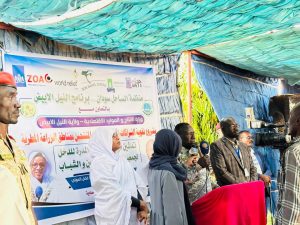The climate-appropriate water and environmental sanitation project
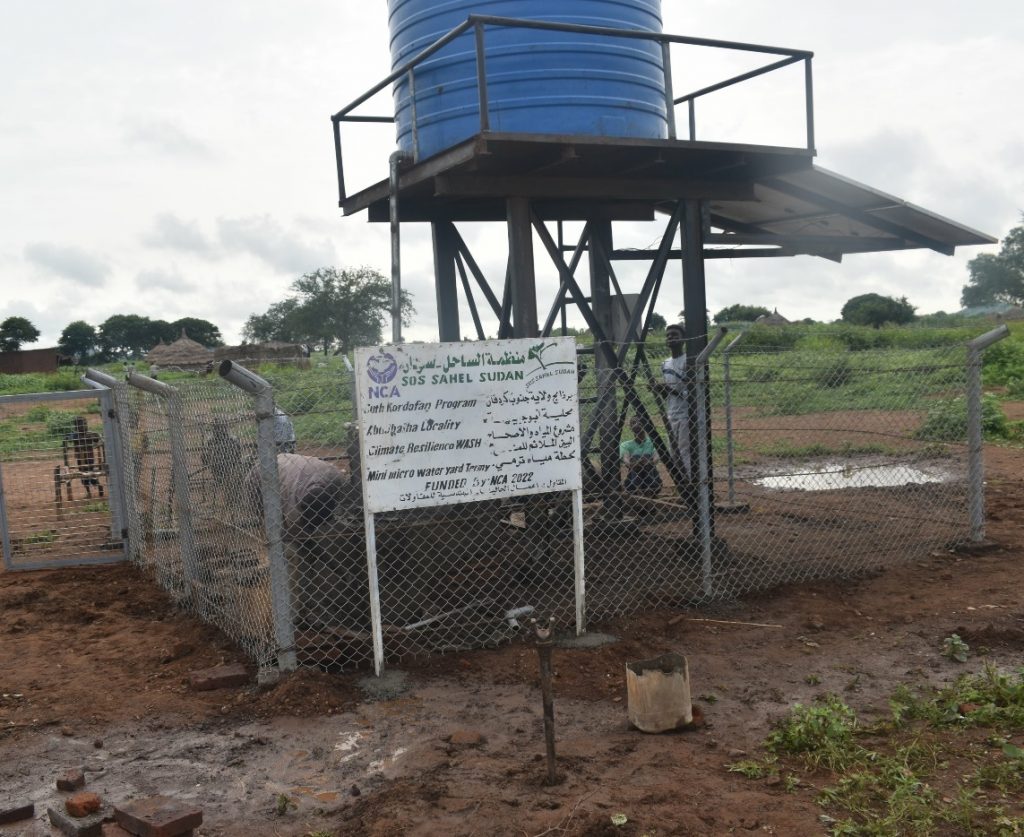
Project location: – South Kordofan – Abu Jubaiha locality
Funding body: – Norwegian Church Aid
The project budget is $155,000
89,000,000 Sudanese pounds
The number of beneficiaries:
11,800 personnel (76 70 men – 4,130 women)
General objective:
Improving her livelihood in the welfare of the local community in South Karavan State.
Project achievements:
Holding five focused awareness sessions about their rights to basic services.
Forming a large number of village committees, taking into account the representation of women and youth
Contacts of contacts
Upgrading one hand pump to a small water station with a dual system (solar energy and diesel)
Upgrading one pump to a small water station
Training of 3 water committees on managing water resources
Excavation and installation of 2 hand pumps
Training of 14 water station operators
Refresher training, 3 pre-configured references
Establishing and training 2 school health clubs
Collect data on diseases and experience with water
Training of 10 trainers, promoting environmental sanitation.
Distribution of 7 hand washing machines to institutions
Abu Jubaiha water station
Establishment and training of 2 committees to reduce disaster risks due to climate change
Implementation of one workshop on climate adaptation for stakeholders
Supporting 3 plans for the committees to adapt and cope with climate changes
Evaluation, follow-up and celebration of the old comprehensive sanitation areas (Taiba Al-Fakhriyya, Taiba South, Al-Manawarat and Kanjarah)
Challenges:-
The roughness of the roads in the fall season, which negatively affected the implementation of the activities of a theoretical nature, such as games and training workshops.
The tribal events that broke out in the Abu Jubaiha locality in March 2022 led to the displacement of a large number of residents in the villages of Jabal al-Dud, Marfa’in, al-Daqaj, and the city of Abu Jubaiha. some activities
Regarding the economic issues that occurred recently, such as floating the Sudanese pound and lifting subsidies on fuel. This greatly affected the performance and implementation of some activities, and its impact was evident in the cancellation of some of them (rehabilitation of toilets in public institutions, 2 toilets, environmental sanitation, community recovery 2 villages, 5 awareness sessions, studies on the possibility of obtaining groundwater).
